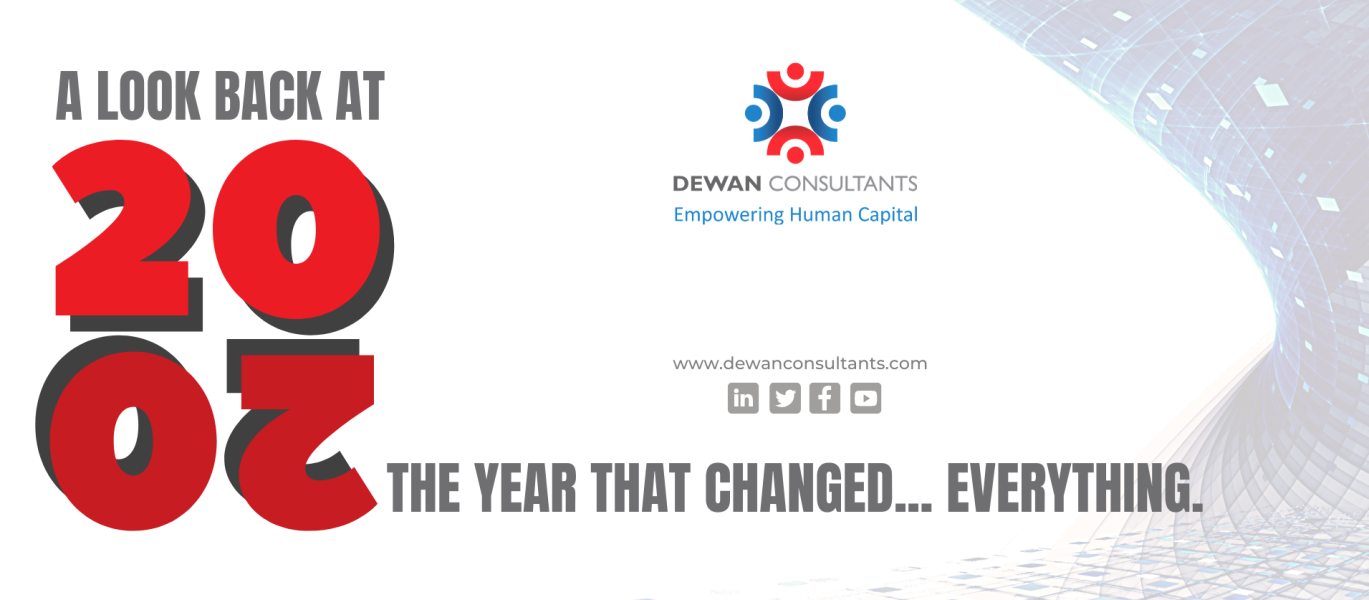 February 15, 2021
February 15, 2021

The buzzwords these days are ‘accelerated digitisation’ and ‘digitalisation’. Therefore it becomes easy to understand, why so many people are apprehensive about the tech-driven process of integrating AI with the human workforce. Despite the uncertainty surrounding the job market during these times of the novel Coronavirus, one thing is clear though, and that is contrary to what some may fear, robots are not taking over human jobs. In the context of technological enablement and automation, there is an ongoing need for fundamentally human and enduring skillsets that robots currently do not possess.
A global car company with a production facility in Germany announced it will reduce the number of robots on its production line and replace them with human labour, as customisation, which is in high demand, is not cost-efficient using robots. In a different industry, one social media company is planning to hire more human workers to provide oversight over what is published on their platforms.
As these examples illustrate, organisations will have to continue to make talent trade-off decisions as automation becomes ever more prevalent and available. Most—thanks to the broader talent continuum the future of work is making available—will have a variety of talent models to choose from. Automation technologies become more likely to be leveraged when the cost of labour for routine tasks rises. In parallel, the marketplace value of human labour to perform highly complex, customised, and unpredictable tasks is also likely to rise.
The ethics of work and society
The driving forces behind new reality, which are being cemented, seem to be the economy of good deeds.
The evolving clash between traditional conceptions of work, societal values, and public policy may define the limits and conditions placed on the future organisation. In particular, worker demands appear to be pushing organisations to focus on worker interests—such as the effect of some technology applications on workers’ well-being—along with broader social benefits. New policies and programs might eventually be needed to balance organisational interests with the need to protect workers from the new working environment’s uncertainties.
Emerging realities
Recent data shows two emerging trends that cast the future of work in a positive light. One of these realities deals with the growing use of advancing technologies to create agile enterprises. The second is that, after a decade of irregular activity, governments and local authorities are starting to take back control over the sharing economy, gig platforms, and cryptocurrencies to help protect both individual workers and organisations seeking to leverage the new technological and workforce options available to them today.
The agile enterprise
Just as big data and the Internet of Things have given rise to exponential organisations, technology has also spawned the development of what we might call “nimble” enterprises. It is no longer David versus Goliath in this new reality, but David with Goliath, as innovation seems to be democratising business ownership. Smaller, agile enterprises are leveraging larger organisations’ solutions, such as cloud computing and online payment services. Compared to traditional small firms, nimble enterprises tend to have a better brand identity, vision, expertise, international networks, and intangible assets. Their cost structure is lean and flexible, allowing them to survive through economic cycles while continuing to generate cash to support their business.
Adapting to the new realities
The new realities we’ve discussed here can present a host of opportunities. But to capitalise on them, we will need to find new ways to align institutions, organisations, and individuals with each other amid rapid market shifts. Public policymakers, organisational leaders, and individual workers will likely need to invest time and effort to figure out how to work together, or at least avoid working at cross-purposes, in the current and future world of work. Yet doing so could ensure that the future of work is both productive and rewarding for all parties.
Capturing the inherent value within each of these new realities could require many changes. It could involve reengineering work to take advantage of technological advances. It may require transforming workplaces to welcome and accommodate a continuum of talent needs. Almost inevitably, today’s organisational leaders will need much courage to upend their existing models of work to usher in a more agile and diverse enterprise.
Our recommendations for leaders seeking to capture value for tomorrow’s realities include:
- Start to explore ways to tap into different parts of today’s talent continuum to accomplish work that is currently more expensive and less productive than you would like it to be. Emphasise human-machine collaboration, not a competition—utilising the strengths that each brings to the workplace. Try, test, and learn.
- Place longer-term strategic bets. Identify the most important value chains in your business, and invest in transforming work in these specific areas. Start small, experiment, and scale quickly.
- Consider ways in which your business can engage in a broader societal narrative. Younger generations, especially, generally expect businesses to play a positive role in shaping society and helping to address some of its most pressing issues.
About Dewan Consultants
At Dewan Consultants, our unique blend of understating needs, talent acquisition and management and commercial understanding of your needs offers a complete people-management and hiring service consultancy. We provide flexibility and access to top-calibre professional HR Advice.
Over the years, we have been recruiting the best talent from across the globe from countries including India, Pakistan, Nepal, Burma, Bangladesh, Sri Lanka, Philippines, Indonesia, Vietnam, Thailand, Jordan, Lebanon, Egypt, Tunisia, Morocco, Ukraine, Kenya, Uganda, South Africa, Lithuania, Romania and the United Kingdom to name a few.
For end-to-end recruitment, we have perfected the art of getting the right fit to the destination country seamlessly.
Presently, we are one of the world’s foremost Human Resource providers. With our in-depth knowledge, insight and expertise in human resources, we are on the path to becoming a name to reckon with.










